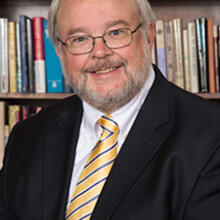Washington does not quite know what to make of Pope Francis. Some ecclesial and political spinners are trying to fit him into their own agendas and biases. Before the conclave we heard contradictory hopes for a new pope: culture warrior or less focused on sexual matters, manager or evangelizer, enforcer or communicator. Instead we have a humble, hopeful and holy pastor. Like his namesake, Pope Francis is likely to make the powerful uneasy. As he declared: “Francis of Assisi—for me, he is the man of poverty, the man of peace, the man who loves and protects creation.... How I would like a church which is poor and for the poor!”
It would be hard to identify three priorities that draw less attention in Washington than poverty, peace and protecting creation. Official Washington is about helping the “middle class,” confronting global enemies and economic growth, not lifting up the poor, seeking peace or caring for the earth. On parts of the left, secular deities are sexual freedom and unrestrained choice. On the right, many worship at the altar of unlimited economic freedom and the unfettered market. Both ideological orthodoxies reflect overwhelming individualism and neither focuses on the common good or protecting the weak.
Pope Francis challenges the economic status quo because he believes it leaves too many behind; this inequality is a “social sin that cries out to heaven.” He will also discomfit elites who are comfortable with a million abortions a year or who insist that resisting the march to same-sex marriage is bigotry. Ecclesial chaplains to ideological factions find Francis threatening because of the consistency he demonstrates in protecting the weak from secularism and materialism, from unrestrained markets and unlimited government. Pope Francis is insistent on the church’s distinctive religious witness: “We can build many things, but if we do not confess Jesus Christ, things go wrong. We may become a charitable N.G.O., but not the church.”
Neither President Obama nor Speaker Boehner traveled to Rome. In fact, Pope Francis asked his friends to stay home and spend the resources on the poor. In that spirit, Washington should honor this new pope by focusing on the neglected national scandal of pervasive poverty. Sadly, lifting up the poor had no meaningful place in last fall’s election. The Romney campaign cited rising poverty in its indictment of the president’s policies, but cynically dismissed the poor behind closed doors (the “47 percent”). More clearly, the G.O.P. budget protects tax cuts for the affluent while cutting help for the hungry, homeless and jobless. The Obama campaign decided that abortion, Planned Parenthood and gay marriage were winning issues, but overcoming poverty was not. In fairness, the administration has worked well with religious leaders in a “Circle of Protection” to protect essential lifelines for poor families and poor nations. However, the Obama bully pulpit has been silent on poverty. Thankfully, President Obama may have found his voice in his inaugural address: “We must be a source of hope to the poor, the sick, the marginalized, the victims of prejudice. Not out of mere charity, but because peace in our time requires the constant advance…tolerance and opportunity, human dignity and justice.”
In facing this moral imperative, the nation must move beyond false choices where progressives focus primarily on better economic policies and conservatives mostly on stronger families. Poor children are helped or hurt by choices of parents and policies of government. Overcoming poverty requires greater personal and public responsibility, both subsidiarity and solidarity, the power of family and community and recognition of the responsibilities and limitations of market and government.
The Catholic community should help end this stalemate. We teach the values of work, family and education. A “church for the poor” serves and defends those left behind by a broken economy and failing public policies. At his inaugural Mass, Pope Francis made his priorities clear, calling us to be “protectors” of “the poorest, the weakest, the least important.” These may not be the priorities of Washington, but they are the moral test of our nation.









John, I have always loved your precision regarding the Church's teaching. Miss those days of the Social Ministry conference when you would give us your analysis of the federal policy and the Washington scene. You have not lost your touch!